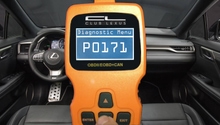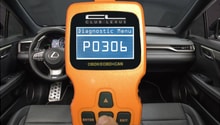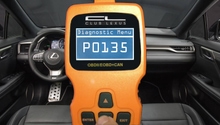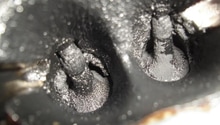Lexus: What Does Error Code P0174 Mean?
The P0174 code means that, on the second bank of the engine, the fuel system is running weak or a vacuum leak exists near this side of the engine. A lean condition occurs when the engine either receives too little fuel or too much air.
(This article applies to the Lexus IS, RX, GS, LS, and ES (2005-Present)
Every Lexus vehicle comes equipped with an OBD connector which can be used to send messages to an OBD2 troubleshooting reader like the one below. Simply connect the scanning tool (or a computer with scanning software downloaded) to the connector (located under the steering wheel) and the readout will show you Diagnostic Trouble Codes that might be affecting your car. From there, you can look up the code at ClubLexus.com to learn what's going on and try to repair it yourself. If you are not comfortable diagnosing and repairing your car, please take it to a Lexus service center. Scanner programs and tools vary in price. An app can be purchased for $4.95, and an OBD -II Scanner/Code Reader can be purchased for anywhere between $19 and $300+ depending on what service functions you need.
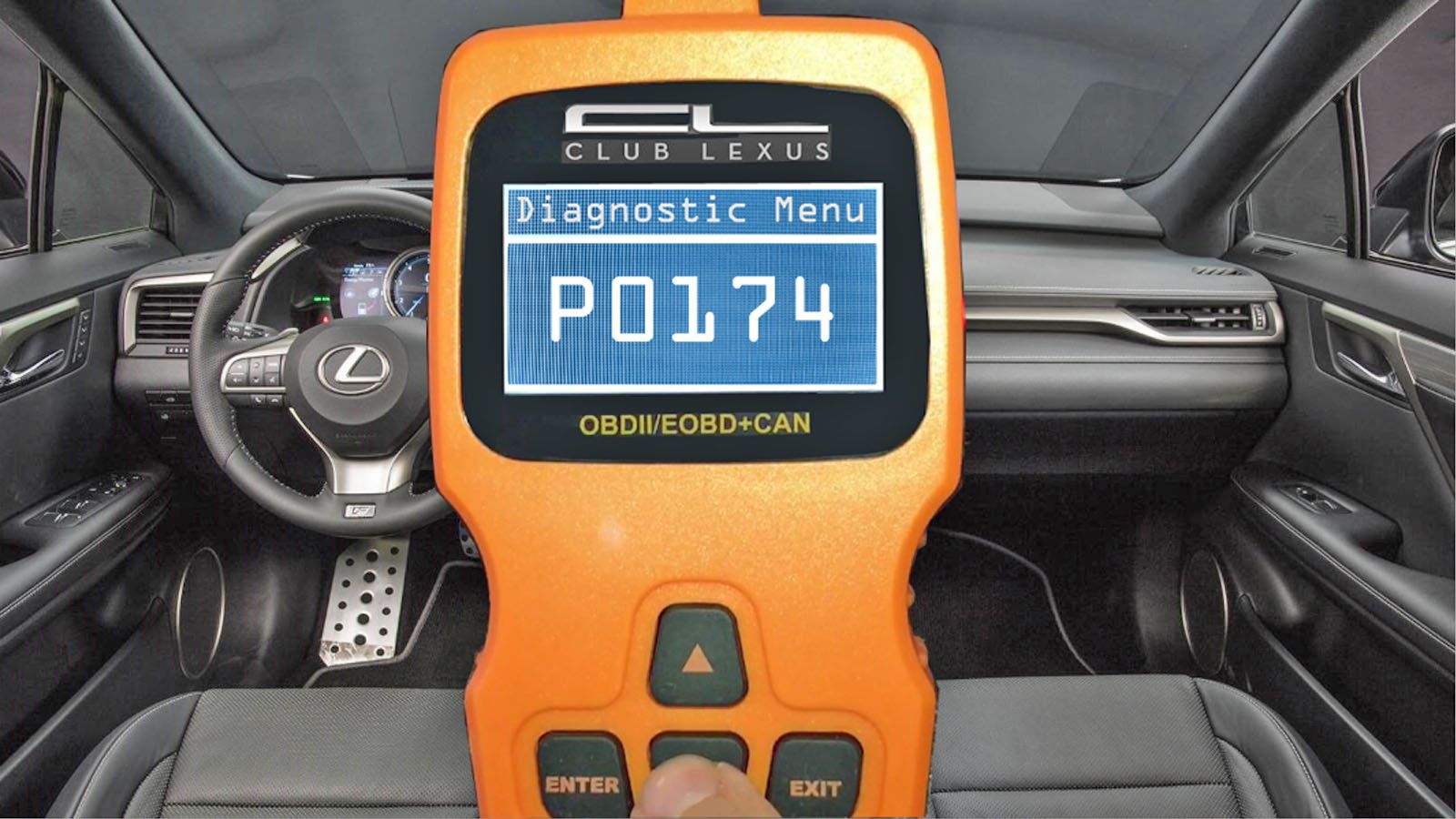
P0174 Definition
The P0171 code means that, on the second bank of the engine, the fuel system is running weak (or lean) or a vacuum leak exists near this side of the engine. A lean condition occurs when the engine either receives too little fuel or too much air. In layman's terms, the computer sees too much air in the system for the proper fuel: air ratio and tells the injectors to stay open longer and add more fuel so as to balance out the ratio.
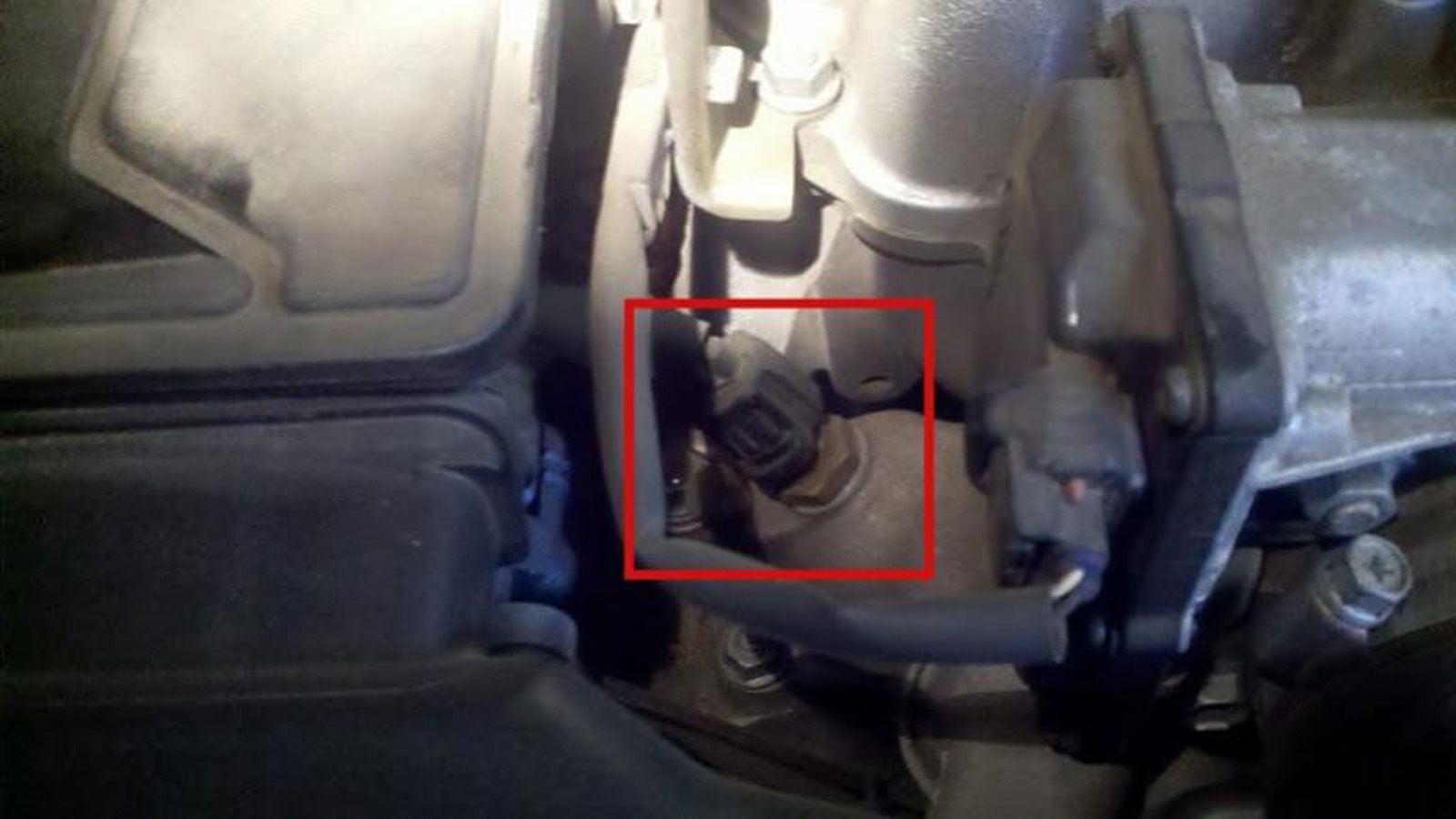
P0174 Explained
Combustion engines operate by burning an air/fuel mixture of about 14.7 to 1—14.7 parts air to 1 part fuel. When the air ratio goes below 14.7 parts, this is called a "rich" mixture. If the air rises above 14.7 parts, it is called a "lean" mixture.
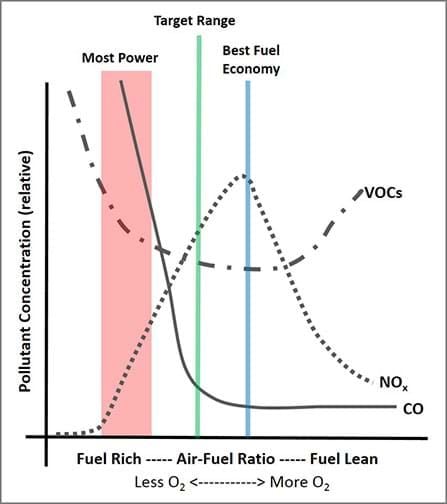
Rich Mixture = Too much fuel, not enough air
Lean Mixture = Too much air, not enough fuel
To keep the engine running properly, the Engine Control Module (ECM) measures the oxygen content in the exhaust with oxygen sensors and makes adjustments to the mixture by injecting more or less fuel. The ECM operates within specific parameters and under normal conditions and will make minor adjustments to the air/fuel mixture. When these adjustments become too large, a fault code is set. When the P0171/P0174 code sets, the oxygen sensors are detecting too little oxygen in the exhaust and the control module is adding more fuel than normal to sustain the proper air/fuel mixture.
When a vehicle has the fault code P0171 and or P0174, it means that computer can no longer automatically adjust the mixture between air and fuel. Code P0171 applies to Bank 1 and P0174 applies to Bank 2. Code P0174 mainly applies to V6 or V8 engines because 4-cylinder engines generally have only one bank, though there are a few exceptions. Some of the high-performance 4-cylinder and straight 6-cylinder engines (such as those in BMW and Lexus) split the cylinders into groups of two or three and call them separate banks. When the code says that the Fuel System is "too lean," it means that the computer has been adding more and more fuel, which is called Long Term Fuel Trim. Ideally, the Long Term Fuel Trim should be close to 1 to 2 percent. When a code P0174 is set, it means that the Fuel Trim is anywhere from 15 percent to as high as 35 percent compensated. When this happens, the computer knows that there is an improper condition in the control of the Fuel System.
P0174 Symptoms
- A lack of power
- Detonation (spark knock)
- Rough idle
- Hesitation/surge on acceleration
P0174 Common Causes
- The Mass Air Flow (MAF) Sensor is dirty or faulty*
- There could be a vacuum leak downstream of the MAF sensor
- Possible cracked vacuum or PCV line/connection
- Faulty or stuck open PCV valve
- Failed or faulty oxygen sensor (bank 2, sensor 2)
- Sticking/plugged or failed fuel injector
- Low fuel pressure (possible plugged/dirty fuel filter!)
- Exhaust leak between engine and first oxygen sensor
*Note: The use of "oiled" air filters may cause the MAF to become dirty if the filter is over-oiled. There is also an issue with some vehicles where the MAF sensors leak the silicone potting material used to protect the circuitry.
P0174 Diagnosis and Repair
A lot of times, cleaning the MAF sensor and finding/fixing vacuum leaks fix the problem. If you're on a tight budget, start there, but that may not be the fix for certain. So, possible solutions include:
- Clean the MAF sensor*
- Inspect all vacuum and PCV hoses
- Replace/repair as required Inspect all hoses and connections in the air intake system
- Inspect and/or test the intake manifold gaskets for leakage
- Check for a dirty fuel filter and proper fuel pressure
- Ideally, you'll want to monitor short and long term fuel trims using an advanced scan tool
- If you have access, you may want to run a smoke test
*Consult your service manual for its location if you need help. I find it's best to take it off and spray it with electronics cleaner or brake cleaner. Make sure you are careful not to damage the MAF sensor, and make sure it's dry before reinstalling.
Final Notes
If you have reinstalled the MAF and cleared the check engine light only to have it come back on code P0174 then continue the diagnosis process. The next step you should take in that process should be to perform a fuel pressure test. If any components in the fuel system are failing, replace them as necessary. If you confirm that there are no vacuum leaks, have a clean MAF, and your fuel system is functioning as it should, it may be time to replace the oxygen sensors.

